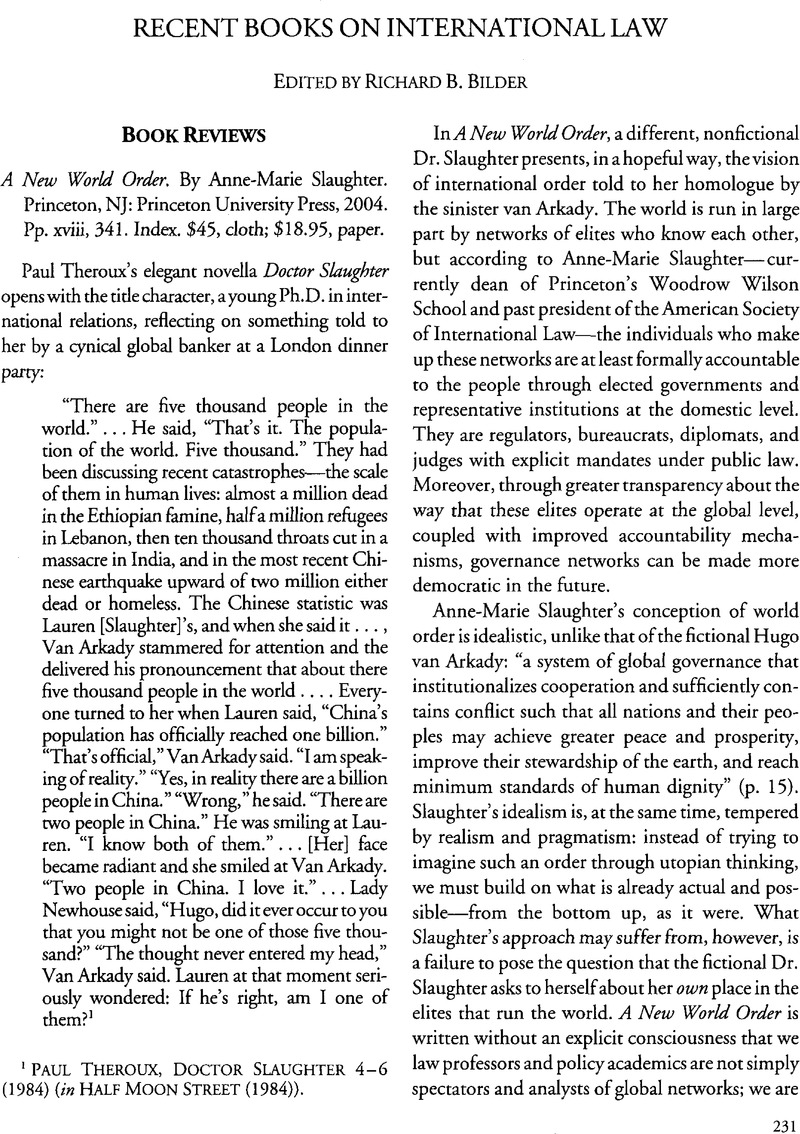Article contents
A New World Order. By Anne-Marie Slaughter. Princeton, NJ: Princeton University Press, 2004. Pp. xviii, 341. Index. $45, cloth; $18.95, paper.
Published online by Cambridge University Press: 27 February 2017
Abstract

- Type
- Recent Books on International Law
- Information
- Copyright
- Copyright © American Society of International Law 2007
References
1 Paul Theroux, Doctor Slaughter 4–6 (1984) (in Half Moon Street (1984)).
2 Compare Teitel, who argues— correctly, in my view—that in the contemporary global context of “fragmented power,” private parties and nongovernmental actors should be seen as actual agents in the making or remaking of international legal order. Ruti, Teitel, Humanity’s Law, 35 Cornell Int’l. L.J. 355, 365–66 (2002)Google Scholar. I am grateful to Professor Teitel for comments on an early draft of this review.
3 See John Gerard, Ruggie, The New Institutionalism in International Relations, in Constructing The World Polity: Essays on International Institutionalization 62 (1998)Google Scholar. Ruggie is another thinker whose work on these issues Slaughter recognizes, see ch. 4 n.89 and accompanying text.
- 1
- Cited by




